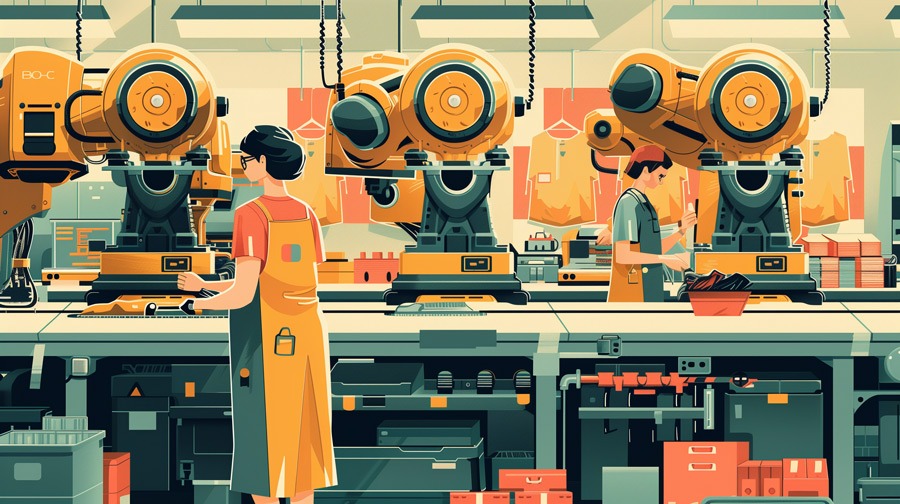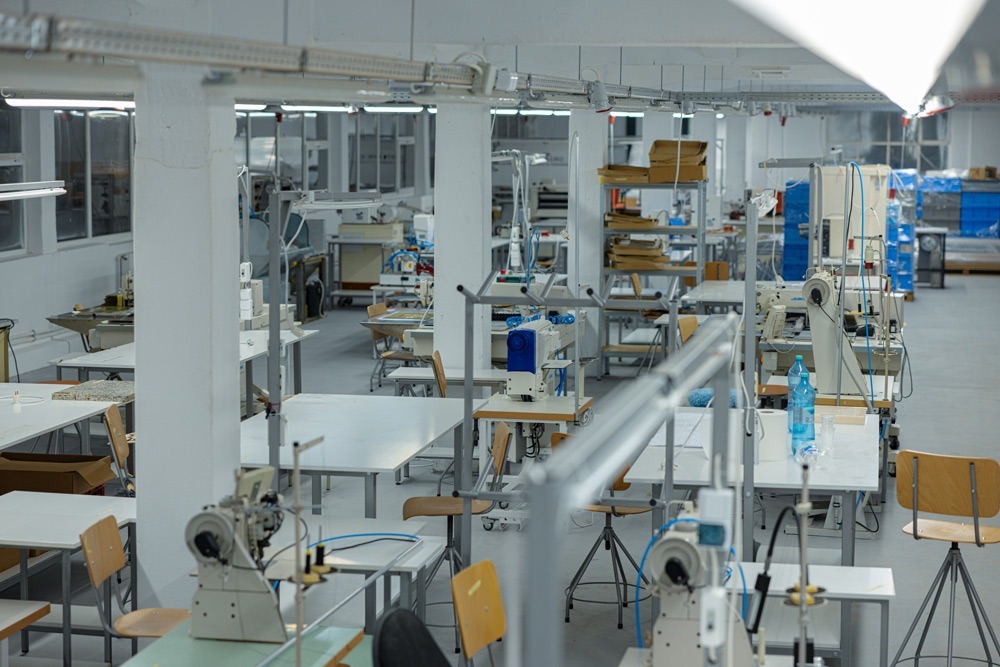A human centric research of skills and decision making capacity
•• Phase 2
Who was involved in the project?
Royal College of Art & Cranfield University
Susan Postlethwaite s.postlethwaite@mmu.ac.uk; Kat Thiel kat.thiel@rca.ac.uk; Sarah Fletcher s.fletcher@cranfield.ac.uk; Ibetta Eimontaite Iveta.Eimontaite@cranfield.ac.uk;
What was the project doing?
The project was based in Human Factors and design practice research to explore skills levels in garment manufacturing to consider the steps that could be designed out and performed by robots or those needing to remain performed by skilled human makers, importantly identifying requirements for promoting worker satisfaction via new technology and automation, particularly co-botics.
Desk-based research was used to establish the state of the art of the skills levels held by machinists in the UK garment industry and what tools existed to enable analysis of these skills levels, and a limited trial of the eye-tracking analysis to explore cognitive/decision-making activity.
Why was this needed?
The UK’s fashion industry has an international reputation for creative design but it is a field that saw limited impact from new technologies in manufacture. The project began to address the challenges of integrating automation into a highly creative sector with a need for very high levels of agility in production processes.
How could members get involved?
The project team welcomed input from economists and policymakers to inform their understanding of the business case for reshoring UK manufacture. Introductions to engineering/manufacturing sites/research labs and hubs would have been very valuable. They also sought members who were interested in being added to their stakeholder list.

